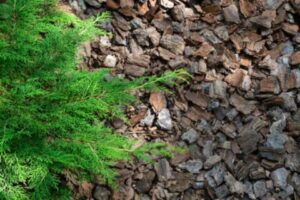Things that Could Be Attracting Termites in Your Home
As homeowners, we want our homes to be inviting places, where guests feel welcomed and comfortable. What we do not want, however, is to make it a welcome place for termites, where they will want to take up residence. Termites are very destructive, causing billions of dollars of damage to homes and businesses every year. Since your home is your biggest investment, you want to protect it, and that means knowing what attracts termites so that you can put termite control best practices into effect. Here, we offer termite prevention tips to help you avoid rolling out the red carpet to these unwelcome houseguests and inviting a termite infestation.

Termites are attracted by wood. Depending on the species, they either seek out dry wood or damp wood, although Subterranean termites will eat either kind. Sometimes, homeowners accidentally bring termites in by carrying in firewood or untreated lumber. Other uses of wood also lead to people inadvertently inviting termites.
- Wood mulch can attract termites. Because wood chips retain moisture, they make a good source of food for termites, and if they touch the foundation, they can help termites gain entry. To minimize your risk of termites, reduce your use of wood mulch, and don’t allow it to touch your foundation. Inspect your mulch regularly, looking for signs of termites.
- Landscaping timbers on the ground can develop moisture. This makes them a perfect place for termites. Using treated wood can prevent an infestation, or you can use stones or bricks in your landscaping.
- Storing wood against the house directs termites to your home. Firewood and wood piles stored close to the house are convenient, but they also allow termites to easily make their way into your home. It is recommended that firewood be stored at least five inches above the ground, at least 20 feet from the house.
- Dead trees and stumps are a termite’s natural habitat. In fact, in nature, termites serve the important purpose of clearing away dead wood. If you have dead trees or stumps in your yard, though, termites can easily nest there and eventually move on to your house. Clear out any dead wood in your yard before it attracts the wrong kind of guests.
- If you don’t trim your trees and shrubs, you could be creating a termite highway. Limbs of trees can touch the roof, branches of bushes can come into contact with your wood siding, and termites can use these conduits to breach your home. What’s more, too many tree limbs can block the sun from your roof, slowing evaporation of moisture.
This brings us to our next point: moisture. Termites aren’t just attracted to moisture; they need it for their survival. They are fragile insects that can easily die if exposed to dry air. That’s why Subterranean termites use mud tubes to make their way from their nests to the house, to keep them from drying out in the open air. There are sources of moisture you can control in your home, and that may be attracting termites.
- Leaks and excess moisture can draw termites to your home. If your plumbing or air conditioner is leaking or your bathroom or laundry room doesn’t have adequate ventilation, the moisture can attract termites. Fix any leaks promptly and control the humidity in your home.
- Standing water from poor drainage can also create a termite problem. If your gutters are clogged or your yard is improperly graded, the water can attract termites. Prevent these problems by cleaning your gutters, pointing your downspouts far from the foundation, and sloping your yard away from the house.
- Damp crawl spaces and basements can harbor termites. These spaces are notorious for being damp, so to prevent termite infestation, waterproof your basement or crawl space and control the humidity. Additionally, avoid storing things down there in cardboard boxes, as cardboard, like wood, contains the cellulose that termites like to eat.
How do you know if your habits have attracted termites? Look for signs of termite infestation. Swarming termites or discarded termite wings are one sign of termites in the area, but other signs don’t involve seeing the insects themselves. One of the most common signs of a termite infestation is mud tubes. These are the tubes subterranean termites use to travel from the nest to the house for food, and seeing them on the outside of your house is a sign that termites have already taken up residence. You might also notice damaged wood, or wood that sounds hollow. Sometimes you will see small holes that termites have used to get into your baseboards, wooden floors, or other wood in your house. Termites can also leave behind droppings, known as frass, that look like sawdust. Any of these signs indicate an active infestation, and this means that you should call in the professionals.
Whenever you need termite treatment, it pays to partner with the professionals known for quality termite control services. At MightyMite Termite Services, we’ve earned a reputation as experts in California termite control. We perform termite inspections to ensure that your home is free of termites and work hard to help you keep it that way, using treatments that are naturally derived and have a low impact on the environment. We diagnose and treat infestations with the most effective methods and unmatched warranties, solving your termite problems the first time, with an industry best “no call-back rate.” That, combined with our experience, technology, and highly trained professional staff, makes us the leading extermination company in the Bay Area. We understand that your home is your most important investment, so we work hard to provide excellent service, utilizing best practices to solve our customers’ termite problems. For more information, email Info@mightymitetermite.com, call us today at 408.335.7053, or contact us through our website.
